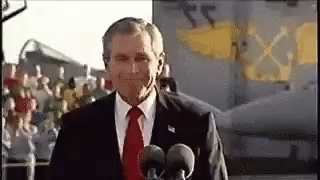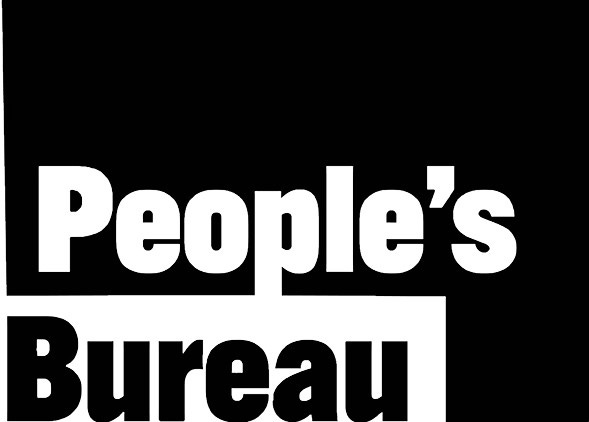😷 Masks still mandated.
Despite what Gov. Reynolds says, Iowa City's mask mandate is still in effect. And being clear on that point matters.
February 7, 2021 | Letter No. 31
New cases of COVID-19 in Iowa hit their height in November. In October, the death toll was 1,500. Last week that number reached 5,000. Nearly 60% of the Iowans who've died from complications related to the virus have died in the past three months. While vaccine rollout has been comparatively slow to other states, health care workers — including the nursing staff of long-term care facilities — have gotten the vaccine.
And it was to this backdrop that Iowa Gov. Kim Reynolds surprised us all by calling off her limited COVID-19 precautions. Starting at 12:01 a.m. this morning, she instead "strongly encourages Iowans, businesses and organizations to take reasonable public health measures consistent with guidance from the Iowa Department of Public Health," Reynolds' spokesperson, Pat Garrett, said in an email. But the state's limited mask requirement, social distancing requirements, and other COVID-19 mitigation measures previously in place for businesses and social gatherings are off. After all, things are going well.



I took a day, but metros piped up saying local mask mandates — those the governor decried — were still in effect. Iowa City, Cedar Rapids, and Des Moines all wrote in to say whatever Reynolds might have announced, local mask mandates and social distancing requirements remain in effect.
Back in July, Iowa City Mayor Bruce Teague mandated wearing face coverings in public places or face a misdemanor charge. The order requires people to wear masks covering the nose and mouth while in public spaces such as grocery stores, pharmacies, hardware stores, retail stores, when using public transportation or taxi services, or when outside and unable to maintain at least 6 feet of separation from other people.
Teague’s order bars businesses from serving or admitting customers without face coverings. It also requires the posting of signage about the requirements at entrances.
The order exempts people from wearing face masks when:
Alone or with household members.
Traveling in a personal vehicle alone or with household members.
Jogging or biking outside.
At a restaurant while eating or drinking.
Visiting a dentist or doctor, or obtaining other services that require temporary removal of face coverings.
Federal or state law prohibits face coverings.
The order also exempts children under age 2; anyone who has trouble breathing or who uses oxygen therapy or a ventilator; and anyone incapacitated or unconscious or who has been told by medical, legal or behavioral health professionals not to wear face coverings.
While the misdemeanor supposed to be a stick for compliance, it’s mostly been an object of ire as residents call in the maskless only to have police offer any number of perfectly good reasons for why they can’t show up to enforce it: college students maskless screaming on a stoop? Private property. They can do what they want. A maskless shopper at the Hy-Vee? The call we need to come from the business owner. The governor from the beginning said these orders weren’t enforceable, and she may have been right.
But if you talk to the policymakers in the room when measures like this were passed, they’ll tell you the point isn’t to wack people for not wearing mask; it’s to make sure the public knows what’s expected.


Iowa City Councilmember Janice Weiner, who agitated for the order from the beginning, is one of those who has pushed conversations to think about what a Devil-may-cry approach to the pandemic signals to the public. The frustration she and others voiced since last summer has been an issue of projecting expectations.
The vaccine is now available to more people every day. Iowa did not see the predicted holiday surge. But I think it’s still difficult to stomach a 2021 retention of laissez-faire public health. I think it makes sense for cities to white-knuckle local ordinances in the shadow of too many obituary clippings.
The road ahead looks similar to the road behind. When the state leaves a vacuum, municipalities have to continue to be leaders. And as they continue to beat the drum, I hope we are taking notes, remembering the people we lost, the options we had, and the options that passed us by.
Be safe and wear your damn mask (double it).
Zachary Oren Smith
Take Five (A celebration Mass worth your Sunday)
Miller-Meeks' a ‘nay’ on budget reconciliation bill - U.S. Rep. Mariannette Miller-Meeks of Iowa hit House Democrats for using the budget bill to push forward “partisan budget resolution” that included a several year walk-up to a $15 national minimum wage. Center on Budget and Policy Priorities had an interesting write up on the history of the process and how it works. Since 1980, its regularly been a tool for enacting majoritarian policies:
Policymakers used reconciliation to enact major spending cuts during President Reagan’s first year in office, several deficit-reduction packages during the 1980s and 1990s, welfare reform in 1996, and the large Bush tax cuts in 2001 and 2003. More recently, reconciliation was used in 2010 to amend the Affordable Care Act and modify the federal student loan program, and in 2017 to enact large tax cuts. Republican majorities also twice attempted to use the reconciliation process to repeal key elements of the Affordable Care Act; President Obama vetoed the first attempt, in 2016, and the second attempt, in 2017, failed to pass in the Senate. - CBPP
💊 Addiction, death, and COVID-19 - Derick Elings of Indianola was sober for three years before in-person AA and NA meetings ended in March. He overdosed in June. In Polk County, there were 88 overdose deaths between March and October of this year; 13% more than the same period in 2019 and $70% more than 2018. The always worth reading Tony Leys writes in The Des Moines Register about addiction in the shadow of the pandemic.
🔌 Big battery in Decorah - Alliant Energy is putting in a $2.5 million battery project to increase the capacity of Decorah’s electrical grid, Erin Jordan of The Gazette reported. The network is only capable of supporting so much electricity, and as more residents adopt solar panels the electricity they meter into the grid, it placing pressure on Alliant’s infrastructure. The project is billed as a feasibility study of these large batteries and their ability to efficiently manage spikes in energy production.
💩 CAFO moratorium ‘dead on arrival’ - A long list of clean water advocates are calling for an end to new confined animal feeding opperations due to their deleterious effects on our clean drink water due to their widespread use in Iowa. House Speaker Pat Grassley, R-Hartford, told James James Lynch of The Gazette this was a non-starter:
“I come from a very rural district that has a lot of hog producers, just a lot of livestock producers. … When you come at it from a standpoint of what some would consider basically shutting down any expansion to the industry and probably hindering its future success, the other side is never going to want to have a conversation,” Grassley said.
📽️ Englert’s 2021 season - My balm for the pandemic blues is imagining the times after. If the pandemic has been a time to read, I want the time after to be in crowds. I miss it. I want to see live acts on stage and not cringe when they get too close. Isaac Hamlet wrote up The Englert’s plans for 2021.
Subscribers make this possible
If you are finding value in this work, I hope you will consider subscribing to it too.


Zachary Oren Smith writes about government, growth and development for the Iowa City Press-Citizen. Reach him at zsmith@press-citizen.com, at 319 -339-7354 or on Twitter via @Zacharyos.




